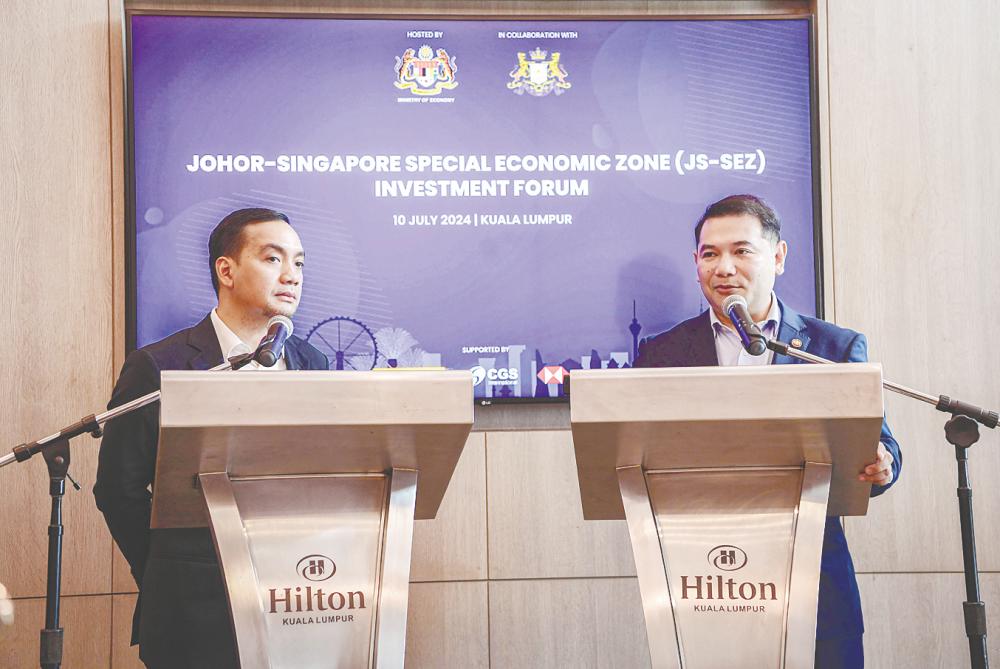KUALA LUMPUR: Economy Minister Rafizi Ramli said he is confident that the definitive agreement with Singapore for the Johor-Singapore Special Economic Zone (JS-SEZ) can be signed by September this year.
The minister said negotiations between Malaysia and Singapore for the JS-SEZ are now in the final stages.
“Johor and the federal government have finalised our asks (whatever they asked) and our framework. It was brought to the Cabinet in May and communicated to the Singapore government. We are now waiting for Singapore to come back.
“Because the structure is in place, we are confident we will complete the negotiations in time for the deadline (September),” Rafizi said in a press conference after the Johor-Singapore Special Economic Zone Investment Forum today.
He added that the fiscal incentives for the JS-SEZ are being finalised and will likely be announced in the upcoming Budget speech.
“All the engagements, workshops, and feedback are now being incorporated. The final stage involves the various ministries, the Ministry of Finance, the Ministry of International Trade and Industry, and Johor putting together a specific package for the JS-SEZ,” he said.
Rafizi also said the focus now is shifting from physical infrastructure development to investor and ecosystem development “... because the plot will sell by itself if you convince the investors and the ecosystem to come.”
And at the same time, he said, the Johor state government and the federal government have been working in parallel to bring JS-SEZ to investors around the world.
“The JS-SEZ aims to be a launchpad for the Asean market, leveraging Asean’s growing economic influence. The project focuses on high-tech, high-value industries backed by venture capital and private equity (VC and PE) funds,” he said.
The value proposition for international investors is clear, according to Rafizi.
He said JS-SEZ will offer the best of both worlds, with investors having access to the sophistication of Singapore ... but the cost and resource advantages of Johor.
“We hope to attract early takers once the agreement is signed and are confident that JS-SEZ will be the launchpad for the Asean market for investors in the next five to 10 years,” he added.
Rafizi also highlighted positive reactions from Chinese investors during his latest visit to China.
“Their reaction has been really good. I met about 100 companies in seven days, and they are very high-quality companies. About 30% of them are PE and VC funds that have been funding the growth of Chinese industries for the last two decades.
“The perception has been beyond my own expectation, and from a Chinese perspective, they see Asean as a very large market. The more integrated the market, the better for them,” he said.
He added, “Whether it’s Chinese or Western investors, the value proposition of JS-SEZ is compelling. We need to manage and transition to meet their expectations. If things are slowed down by bureaucracy or red tape, or if there’s too much planning imposed on them ... we have to be careful.”









